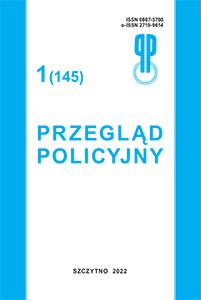Zadania Policji w wykrywaniu przestępstwa stypizowanego w art. 299 ustawy z 6 czerwca 1997 r. — Kodeks karny w świetle ustawy z 1 marca 2018 r. o przeciwdziałaniu praniu pieniędzy oraz finansowaniu terroryzmu
Tasks of the Police in Detecting the Crime Specified in Article 299 of the Penal Code of 6 June 1997 in the Light of the Act of 1 March 2018 on the Prevention of Money Laundering and Terrorist Financing
Author(s): Wiesław JasińskiSubject(s): Economy, Law, Constitution, Jurisprudence
Published by: Akademia Policji w Szczytnie
Keywords: money laundering; General Inspector of Financial Information; intelligence gathering; investigative activities; national risk assessment
Summary/Abstract: Money laundering is an important business for individual perpetrators andorganised crime groups as it allows them to operate using the proceeds of crime in thelong term, at the same time posing a major threat to legitimate business transactions.For these reasons, counteraction systems with a central place for state authorities(AML) have been created in the world for over three decades. In Poland, for 20 yearssuch a system has been based on the General Inspector of Financial Information(hereinafter: GIIF), whose activities are used, among others, by the prosecution ser-vice and the police. This is primarily related to the fact that such information has tobe used in complex preparatory proceedings, and in covert policing. The new law of1 March 2018 on the prevention of money laundering and terrorist financing speci-fies conditions for cooperation between a number of entities, including the GIIF, thePublic Prosecution Service and the Police, details the principles of information transferbetween them, delineates the scopes of competence and determines how to use theprivate sector to combat the criminal business in question. This paper presents threecategories of tasks performed by the Police in detecting money laundering, which areincluded in the AML system. The first category is intelligence gathering, which is notdirectly defined by the Act of 1 March 2018, but its results are also submitted to theGIIF and may be of great importance for the AML system. The second one comprisesthe tasks resulting from direct communication between the Police and the GIIF, as wellas investigative activities carried out following a report of a money laundering offence.The third category is tasks related to the creation and use (also in the process of crimedetection) of the national money laundering risk assessment and those resulting fromthe AML and counter-terrorist financing strategy
Journal: Przegląd Policyjny
- Issue Year: 145/2022
- Issue No: 1
- Page Range: 225-241
- Page Count: 16
- Language: English, Polish

